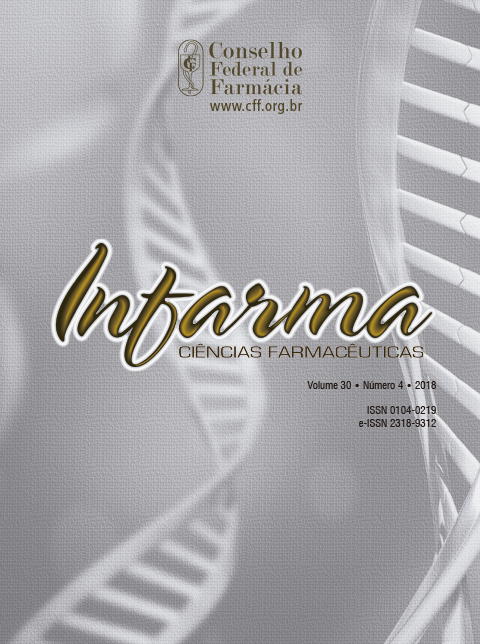Food habits and occurrence of changes in lipid metabolism in resident and non-resident university with family
DOI:
https://doi.org/10.14450/2318-9312.v30.e4.a2018.pp250-260Keywords:
dyslipidemias, feeding behavior, students.Abstract
Dyslipidemia consists of a change related to lipid metabolism and is among the leading causes of cardiovascular diseases in the world, affecting different populations, especially university students. Admission to the university is a stage full of biopsychosocial changes and among them, leaving the parents’ home is directly related to changes in eating habits and consequently changes in lipid metabolism. In this study, the eating habits and the lipid profile of a population of 86 university students living with or without their parents, from a higher education institution in Juazeiro do Norte, Ceará, Brazil, were evaluated. Of the 86 participants in the study; 55.8% were female, and 44.2% were male; 95.4% of university students presented poor or irregular eating habits, and only 4.6% presented healthy eating. The most common changes in the lipid profile were hypertriglyceridemia and decreased HDL-c. From the results of the present research, it is possible to conclude that university students living with their parents are more likely to adopt poor eating habits and develop dyslipidemias. The more active participation of higher education Institutions in campaigns that promote more information about the advantages of adopting a healthier lifestyle would constitute an important preventive action for university students.
Downloads
Published
How to Cite
Issue
Section
License
Authors who publish in this journal agree to the following terms:
- Authors retain the copyright and grant the journal the right of first publication, with the work simultaneously licensed under the Licença Creative Commons Attribution which allows the sharing of work with acknowledgment of authorship and initial publication in this journal.
- Authors are authorized to take additional contracts separately, for non-exclusive distribution of the version of the work published in this journal (e.g. publish in institutional repository or as a book chapter), with acknowledgment of authorship and initial publication in this journal.
- Authors are allowed and encouraged to publish and distribute their work online (e.g. in institutional repositories or on their personal page) at any point before or during the editorial process, as this can generate productive changes as well as increase the impact and Citation of published work (See O Efeito do Acesso Livre ).


